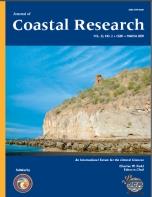The purpose of this work was to study the impact of a major heavy oil spill of 15,000 t in the Eastern Mediterranean Sea on the density of different biodiversified bacterial groups in oysters. Statistical comparisons of the enumerated bacterial groups before and after the oil spill are reported. Results show an insignificant decrease (P > 0.05) in most bacterial counts in oysters following the oil spill, namely: total aerobic bacteria (TAB), total coliforms, and Staphylococcus aureus. A significant drop of around 50% in the counts of anaerobic Clostridium perfringens occurred in oysters following the oil spill in comparison to counts before the spill (P < 0.05). Only the Vibrio spp. had a slight insignificant rise in count after the oil spill as compared to that before the spill (P > 0.05). The significant drop in the density of C. perfringens in oysters after the oil spill is worth further investigation in the future as a possible sensitive bioindicator. Such an indicator could be used in evaluating the impact of oil pollutions in marine waters and the self-purification processes that follow to sustain the homeostasis of surviving oysters and their colonized microbiota in the Mediterranean.
How to translate text using browser tools
1 March 2009
Impact of Oil Spill in the Mediterranean Sea on Biodiversified Bacteria in Oysters
Zeina G. Kassaify,
Rana H. El Hajj,
Shady K. Hamadeh,
Rami Zurayk,
Elie K. Barbour
ACCESS THE FULL ARTICLE

Journal of Coastal Research
Vol. 2009 • No. 252
March 2009
Vol. 2009 • No. 252
March 2009
bacteria
Clostridium perfringens
Oil spill
oysters




